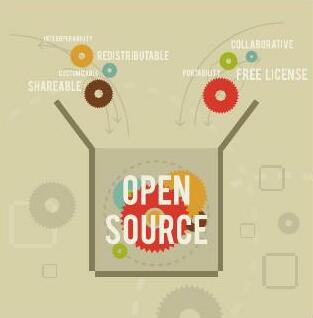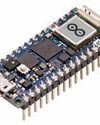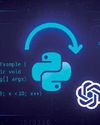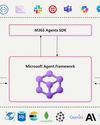Versuchen GOLD - Frei
Why Open Source Dependencies Must be Managed
Open Source For You
|May 2024
Unmanaged reliance on open source software may result in a Support crisis over a project’s life span, as well as financial loss for the organisation. Planned and regular upgrades of open source software components are a must.

Open source components are critical to large projects for a variety of reasons. They provide cost-effective solutions by removing licensing costs and encouraging community-based innovation. Furthermore, open source encourages cooperation, providing access to a wide reservoir of knowledge and various viewpoints. These components frequently have active communities that provide rapid updates, bug fixes, and security patches. Big projects can use open source components to expedite development, minimise time to market, and retain scalability.
When integrating open source components, however, use caution. To begin with, confirming licensing compliance is critical to avoiding legal problems. Second, reliance on other projects may present security vulnerabilities or compatibility difficulties, needing ongoing monitoring and upgrades. Third, because of the reliance on community assistance, replies to issues or bugs may be delayed and ineffective. Finally, due diligence is required in assessing the long-term maintenance of open source projects to reduce the risks associated with project abandonment or obsolescence.
In this article, we will look at the many issues of keeping open source components updated. Teams must be prepared to handle updates to diverse open source components without creating any downtime.
Everything starts from proof-of-concepts
Diese Geschichte stammt aus der May 2024-Ausgabe von Open Source For You.
Abonnieren Sie Magzter GOLD, um auf Tausende kuratierter Premium-Geschichten und über 9.000 Zeitschriften und Zeitungen zuzugreifen.
Sie sind bereits Abonnent? Anmelden
WEITERE GESCHICHTEN VON Open Source For You

Open Source For You
Lux: Excellence in Data Analysis and Visualisation
Data is sacred in today's world, and Python libraries like Lux make data analysis and visualisation so much easier.
2 mins
January 2026

Open Source For You
The Role of Open Source in Building Modern Data Infrastructure
It's no secret that open source is emerging as the backbone of modern data infrastructure. Here’s a list of the core open source technologies used to deploy this infrastructure, along with some real-world examples and a brief on why open source matters.
3 mins
December 2025

Open Source For You
The Whispering Machines: How Open Source is Bringing Intelligence to the Tiniest Devices
Built on open source frameworks, TinyML is enabling complex machine learning models to run on the microcontrollers embedded in connected devices, bringing artificial intelligence to the very edge of the network.
3 mins
December 2025

Open Source For You
Setting Up Snort to Secure Your Network
Snort is a popular, open source intrusion detection system that monitors traffic in real time to detect malware. Here’s a detailed explanation of how to set it up on Ubuntu and test it by generating traffic from another system.
7 mins
December 2025

Open Source For You
When AI Meets DevOps to Build Self-Healing Systems
Traditional DevOps, with its rule-based automation, is struggling to work effectively in today’s complex tech world. But when combined with AlOps, it can lead to IT systems that predict failures and solve issues without human intervention.
7 mins
December 2025

Open Source For You
How to Automate Java Code Modernisation
This short guide illustrates that automating Java code modernisation with Python and OpenAI API is not just possible-it's remarkably effective.
5 mins
December 2025

Open Source For You
The Quest to Build a Quantum Computer
The road to large-scale quantum computing is long and hard, with incremental advances paving the way. But the destination is in sight.
12 mins
December 2025

Open Source For You
Job Opportunities: What's Hot in the Cloud Space?
If there's one field that refuses to slow down, it's cloud computing. Even as automation and AI reshape roles, cloud adoption continues to surge. From startups deploying microservices overnight to enterprises migrating decades of legacy systems, cloud remains the engine of digital transformation. For professionals, this means one thing: skills that live in the cloud won't come down anytime soon.
2 mins
December 2025

Open Source For You
Securing Client Identity with Post-Quantum Cryptography
Here's a quick tutorial on how to build a secure, real world client-server model that establishes client identity by using CRYSTALS-Dilithium, a post-quantum cryptography algorithm.
3 mins
December 2025

Open Source For You
Unlocking the Power of Multi-Agent Solutions with the Microsoft Agentic Framework
The Microsoft Agentic Framework is rapidly emerging as a cornerstone for developers, architects, and technology leaders seeking to build dynamic, intelligent systems powered by multiple collaborating agents. In an era where automation, distributed intelligence, and adaptive software are increasingly vital, this framework offers robust tools and features to accelerate the design and deployment of agent-based solutions.
6 mins
December 2025
Listen
Translate
Change font size

